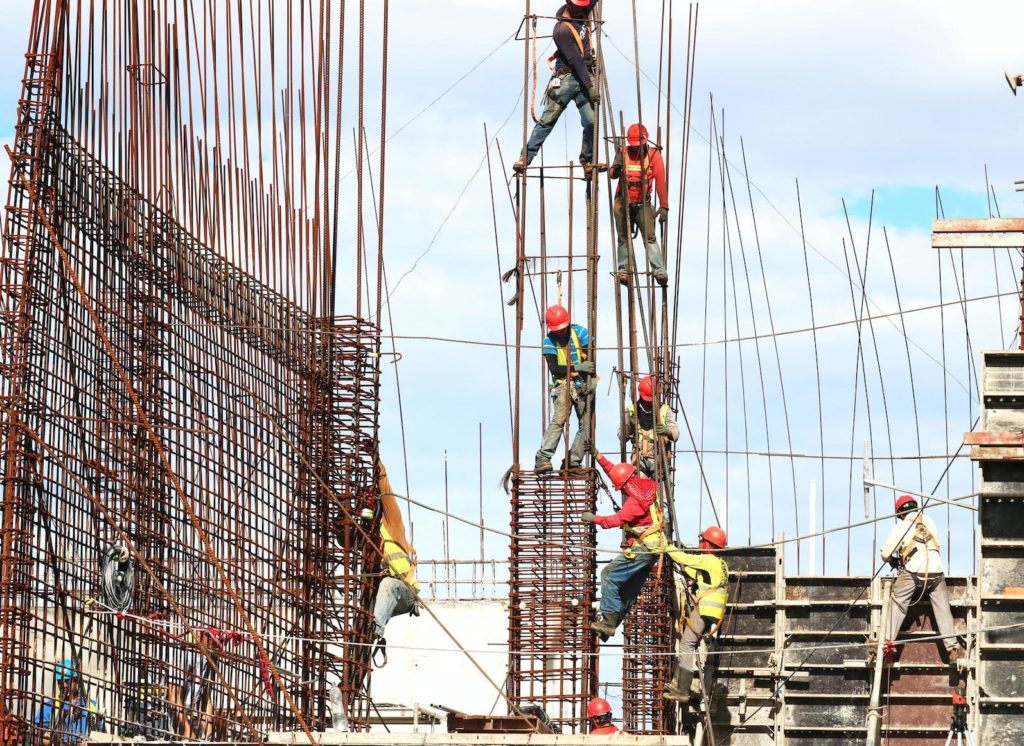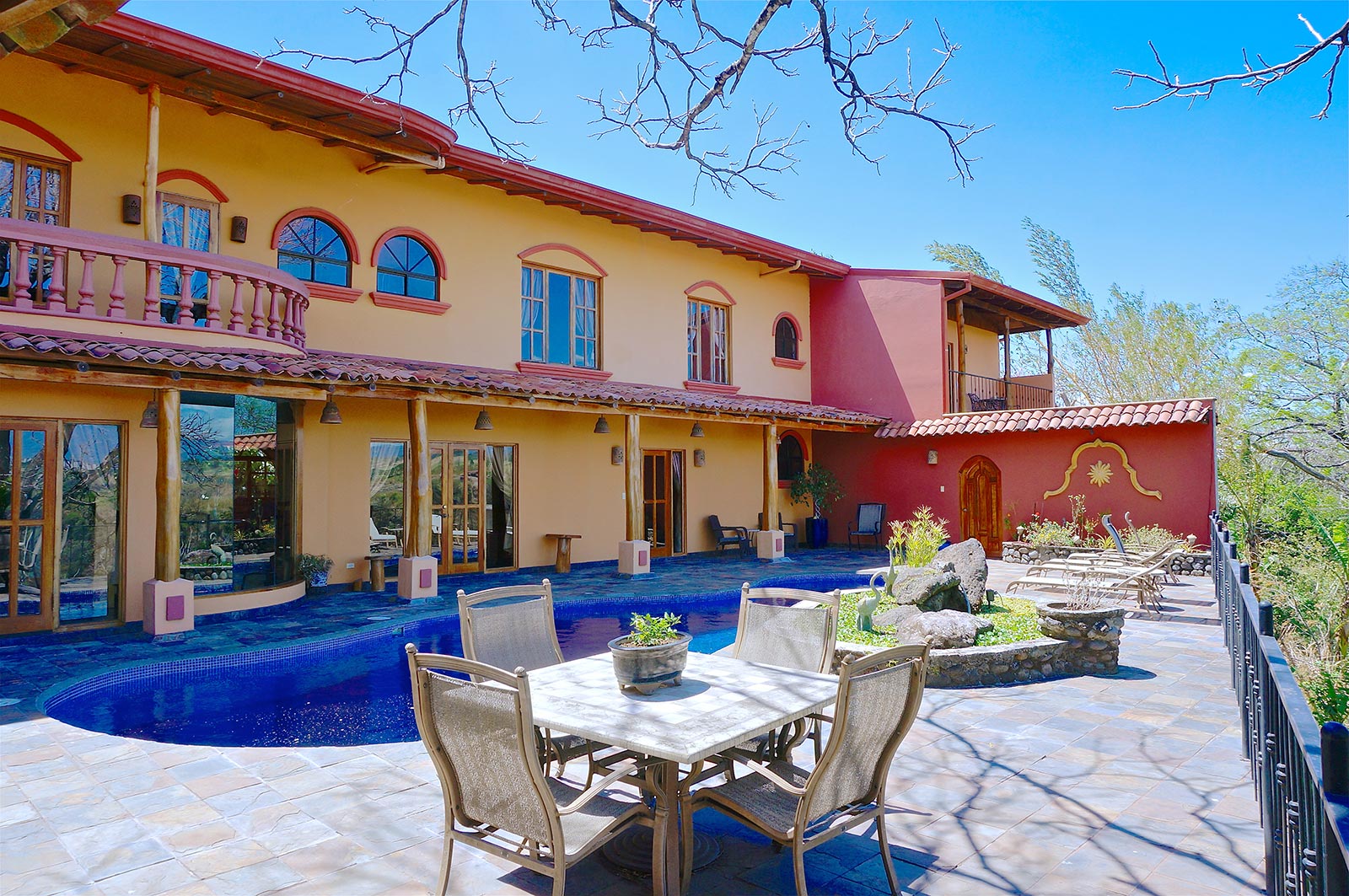Where to Buy Real Estate in Costa Rica
November 21, 2024
Properties in Costa Rica
Costa Rica is a slice of paradise that offers more than just breathtaking views and lush landscapes—it’s a lifestyle dream for those looking to invest in real estate. Whether you’re drawn to pristine beaches with golden sands, the cool tranquility of mountain retreats, the vibrant energy of city life, or the charm of quiet rural towns, Costa Rica has something for everyone.
For expatriates, the country offers a welcoming community, a stable economy, and top-notch healthcare, making it an ideal spot to retire or start anew. Investors are drawn to its thriving tourism industry and growing demand for vacation rentals, while locals value the high quality of life and investment opportunities close to home.
Ready to explore what makes Costa Rica a real estate haven? Let’s dive into the possibilities!
Factors to Consider When Buying Real Estate in Costa Rica
Location
Costa Rica’s diverse geography offers endless possibilities, making location one of the most critical decisions when buying real estate. If you’re drawn to the ocean, beach towns like Tamarindo or Jacó offer stunning coastlines, vibrant communities, and excellent opportunities for rental income. These areas are ideal for those looking to capitalize on the booming tourism industry.
For retirees or those seeking tranquility, mountainous regions like Atenas or Monteverde provide cooler climates, breathtaking views, and a peaceful environment. These areas are perfect for connecting with nature while remaining relatively close to urban amenities. Similarly, the Central Valley, including cities like San José and Escazú, caters to professionals or families looking for modern infrastructure, top-tier healthcare, and international schools.
Your choice of location should align with your primary purpose for purchasing the property. Are you looking for a vacation home, a rental investment, or a permanent residence? Each region’s appeal will vary based on your needs. Take time to visit potential areas and consider factors such as community vibe, weather, and proximity to points of interest.
Finally, think about long-term growth. Some regions, like the Southern Zone (Uvita and Ojochal), are emerging markets with significant potential for property appreciation. Researching trends and speaking with local experts can provide valuable insights to make an informed decision.
Budget
Costa Rica’s real estate market offers properties that range from affordable rural lots to luxurious beachfront villas. Setting a realistic budget is essential to narrow your options and avoid unexpected financial burdens. Begin by determining your purchase price range, and don’t forget to account for additional expenses like closing costs, legal fees, and property taxes.
In tourist-heavy areas, like Manuel Antonio or Playa Flamingo, properties tend to be more expensive due to high demand. However, if you’re open to less developed locations, you may find hidden gems at a fraction of the cost. For instance, towns like Sámara or Puerto Viejo offer affordable options with immense charm and strong community vibes.
It’s also important to consider ongoing costs beyond the purchase price. These can include maintenance, HOA fees (if applicable), and utility bills. For investment properties, think about costs for property management services or marketing if you plan to rent the property to tourists.
Lastly, having a pre-approved mortgage or liquid funds can help you act quickly in a competitive market. Working with local banks or private lenders familiar with Costa Rica’s real estate landscape will make the financing process smoother.
Accessibility
Accessibility is a major factor when choosing a property, especially in a country with such varied terrain. Properties near major airports or highways, like those in Guanacaste or the Central Valley, are ideal for frequent travelers or those who prioritize convenience. For example, Guanacaste’s proximity to Liberia International Airport has boosted its real estate value, making it a hotspot for investors.
If you’re eyeing a remote area for its tranquility, keep in mind the challenges of getting there. Mountainous or jungle properties may require navigating unpaved roads, especially during the rainy season. While these areas offer unmatched peace and natural beauty, accessibility may be a concern for daily living or if you plan to host guests.
Also, consider how close the property is to essential services. Hospitals, schools, supermarkets, and entertainment options should be easily reachable, particularly if the property is for permanent residence. In popular areas like Escazú, you’ll find a blend of luxury living and proximity to high-quality services.
Accessibility also impacts the rental potential of your property. Vacationers often prefer places that are easy to reach, with amenities like restaurants and tourist attractions nearby. A property with good accessibility will have a better chance of attracting short-term or long-term tenants.
Legal Regulations
Buying property in Costa Rica is straightforward for foreigners, but understanding the legal landscape is essential to avoid pitfalls. One of the first steps is ensuring the property has a clear and legitimate title. Properties should be registered in the National Registry, and hiring a trustworthy attorney to conduct due diligence is a must.
Foreigners have the same ownership rights as Costa Rican citizens, but there are exceptions for maritime zone properties (those within 200 meters of the high tide line). If you’re considering beachfront property, make sure you understand the concession laws and obtain all the necessary approvals.
Zoning regulations and land use permits are also important. Whether you’re buying a lot to build on or an existing property, confirm that your intended use aligns with local zoning laws. These regulations can affect whether you can build a residential home, a business, or even a tourist development.
Finally, familiarize yourself with the process of closing a deal. You’ll work with a notary public who acts as an attorney in Costa Rica. They will prepare the necessary documents, register the transaction, and ensure all fees are paid. Be aware of closing costs, which typically include legal fees, transfer taxes, and other administrative expenses, amounting to approximately 3-4% of the property’s value.
The Allure of Costa Rica’s Popular Beaches
Costa Rica is renowned for its stunning coastline, and beach properties are among the most sought-after investments in the country. In Guanacaste, towns like Tamarindo and Nosara stand out as premier destinations. Tamarindo, with its golden sands and lively atmosphere, is perfect for those seeking a balance between relaxation and vibrant nightlife. It’s a hotspot for tourism, making it an excellent location for vacation rentals or second homes. Just a short drive away, Nosara offers a more laid-back vibe, attracting surfers, yogis, and anyone looking for a tranquil escape without sacrificing modern amenities.
Meanwhile, Puntarenas province is home to popular destinations like Jacó and Manuel Antonio. Jacó, located just an hour and a half from San José, is one of the most accessible beach towns in the country. It’s a bustling hub for surfers, digital nomads, and investors looking for properties with strong rental potential. On the other hand, Manuel Antonio combines breathtaking natural beauty with luxury living. Known for its famous national park, this area offers high-end real estate options and consistent demand from tourists worldwide.
Urban Living with a Costa Rican Twist
If city life is more your style, Costa Rica’s Central Valley offers a mix of modern conveniences and cultural charm. San José, the capital city, is a bustling hub for business, education, and entertainment. Its central location provides easy access to the rest of the country, while its growing real estate market offers a variety of options, from high-rise apartments to suburban homes.
For those seeking a slightly quieter yet equally modern environment, Escazú is the place to be. Often referred to as “the Beverly Hills of Costa Rica,” Escazú boasts luxury homes, world-class shopping centers, and top-tier healthcare facilities. It’s a favorite among expatriates and locals alike, thanks to its cosmopolitan vibe and excellent infrastructure.
Nearby, Santa Ana offers a harmonious blend of urban and suburban living. This area has grown rapidly in recent years, attracting families and professionals who want a more tranquil atmosphere without straying too far from the city’s amenities. Santa Ana’s real estate market includes modern condos, gated communities, and properties with stunning valley views, making it a versatile option for buyers.
Escape to the Mountains and Nature
For those craving a deeper connection to nature, Costa Rica’s mountainous regions provide unparalleled serenity. In the Southern Zone, areas like Dominical and Uvita are havens for peace seekers. Dominical is a quiet surf town with a growing real estate market, offering a mix of ocean-view homes and jungle retreats. Nearby Uvita is famous for its iconic Whale Tail beach and close-knit community, attracting both expats and locals looking for an eco-friendly lifestyle. These areas are perfect for those who value privacy and natural beauty while still having access to modern conveniences.
Further north, Monteverde is a dream come true for ecotourism enthusiasts. Nestled in the cloud forest, this region is known for its lush greenery, cooler climate, and commitment to sustainability. Real estate here is ideal for those looking to invest in eco-lodges, vacation rentals, or personal retreats that emphasize harmony with nature. Monteverde offers a unique opportunity to live among one of the most biodiverse ecosystems in the world while enjoying a tranquil, community-focused environment.
The Allure of Limón’s Caribbean Coast
Costa Rica’s Caribbean coast, located in the province of Limón, offers a completely unique experience compared to the bustling Pacific. Here, the rhythm of life slows down, blending vibrant Afro-Caribbean culture with untouched natural beauty. From secluded beaches to lush rainforests, Limón captures the essence of a tropical paradise, making it an increasingly attractive destination for real estate buyers.
One of Limón’s most iconic areas is Puerto Viejo, a charming beach town known for its golden sands and turquoise waters. This destination is beloved by surfers for its world-class waves and by those seeking a bohemian lifestyle filled with reggae music, local art, and fresh Caribbean cuisine. The real estate market in Puerto Viejo is as diverse as its community, with options ranging from cozy jungle retreats to luxurious beachfront villas, perfect for vacation homes or rental properties.
Further up the coast, Cahuita offers a tranquil escape with a more traditional Caribbean vibe. Its proximity to the Cahuita National Park—a haven for wildlife and stunning coral reefs—makes it an ideal location for nature lovers. Real estate here is characterized by larger lots, perfect for creating private eco-friendly residences or boutique accommodations that cater to the region’s growing eco-tourism market.
For those seeking even more seclusion, Manzanillo, nestled within the Gandoca-Manzanillo Wildlife Refuge, offers an untouched paradise. This area is ideal for buyers who value privacy, serenity, and a strong connection to nature. Whether you’re envisioning a peaceful retirement home or an investment in sustainable tourism, Manzanillo offers endless possibilities.
Unlike the Pacific coast, Limón remains relatively undiscovered, which means real estate here often comes at a more affordable price. Its warm culture, lush landscapes, and tranquil way of life make Limón’s Caribbean coast a truly special place for those looking to escape the ordinary and embrace the extraordinary.
Real Estate Trends in Costa Rica
Costa Rica’s real estate market continues to evolve, driven by global shifts, local demand, and the country’s growing reputation as a desirable destination for living, retiring, and investing. Understanding the current trends is crucial for making informed decisions when purchasing property in this tropical paradise.
The Rise of Sustainable and Eco-Friendly Properties
Sustainability is no longer a buzzword in Costa Rica—it’s a way of life. With the country’s commitment to becoming carbon neutral and its rich biodiversity, there has been a noticeable shift towards eco-friendly developments in the real estate market. Buyers are increasingly seeking properties that align with environmental values, such as solar-powered homes, rainwater harvesting systems, and energy-efficient designs.
Regions like Guanacaste and the Southern Zone have seen a surge in eco-villages and sustainable communities that blend luxury living with environmental stewardship. These properties not only appeal to environmentally conscious buyers but also hold strong resale value due to their alignment with global sustainability trends.
Growing Demand for Retirement and Investment Properties
Costa Rica has long been a favorite destination for retirees, thanks to its year-round warm climate, affordable healthcare, and welcoming culture. This demographic, combined with investors seeking high returns, has fueled demand for properties tailored to these needs. Gated communities, homes in tranquil areas like Atenas or Escazú, and beachfront condos with resort-style amenities are particularly popular.
The country’s relatively low property taxes and stable political environment make it an attractive option for foreign buyers. Additionally, the rise of digital nomadism has brought in a younger, tech-savvy demographic interested in long-term rentals or homes that double as vacation properties and remote workspaces.
Tourism’s Impact on the Real Estate Market
Tourism remains one of Costa Rica’s main economic drivers, and its influence on the real estate market cannot be overstated. Popular tourist destinations such as Tamarindo, Manuel Antonio, and Puerto Viejo have experienced booming short-term rental markets. Properties in these areas often generate significant income during peak travel seasons, making them attractive to investors.
This demand has also led to an increase in boutique hotels, eco-lodges, and vacation rental developments designed to cater to the growing influx of international travelers. As tourism continues to thrive, owning property in tourist hotspots offers both lifestyle and financial benefits, whether for personal enjoyment or as an income-generating asset.
Conclusion: Investing in Costa Rica’s Real Estate Market
Costa Rica continues to be one of the most attractive destinations for real estate buyers, offering a diverse range of opportunities across its beaches, cities, and mountain retreats. Whether you’re looking for a sustainable home close to nature, a retirement property with all the modern comforts, or a profitable investment in a growing tourist market, Costa Rica’s real estate sector has something for everyone.
The country’s commitment to sustainability, the increasing demand for properties from retirees and investors, and the ever-growing impact of tourism make it an ideal place to invest in real estate. From the laid-back vibes of Puerto Viejo to the luxury communities in Escazú, each area offers its own unique charm and set of advantages.
As the market continues to evolve, it’s clear that Costa Rica’s appeal is not just about its natural beauty—it’s also about the opportunities for those seeking a high quality of life, strong returns on investment, and a connection to a rich, vibrant culture. With careful planning and an understanding of the trends shaping the market, purchasing real estate in Costa Rica can be a rewarding and fulfilling decision for years to come.
Whether you’re a first-time buyer or a seasoned investor, Costa Rica presents the perfect backdrop for your next real estate venture.
Comments Off on Where to Buy Real Estate in Costa Rica















